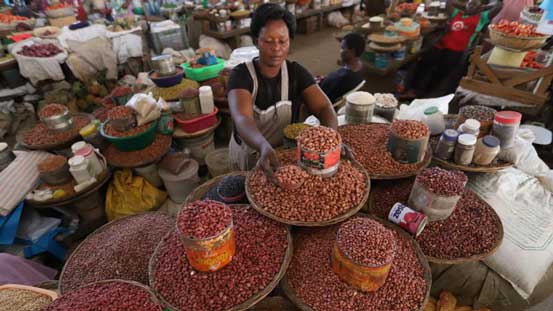×
The Standard e-Paper
Stay Informed, Even Offline

KISUMU, KENYA: low purchasing power has hit mall scale businesses in Kisumu with goods previously sold in a week now taking up to a month to clear stock.
Investigations by the Standard established traders selling various consumable goods in Jubilee and Kibuye markets are recording reduced profits each day, week and month.